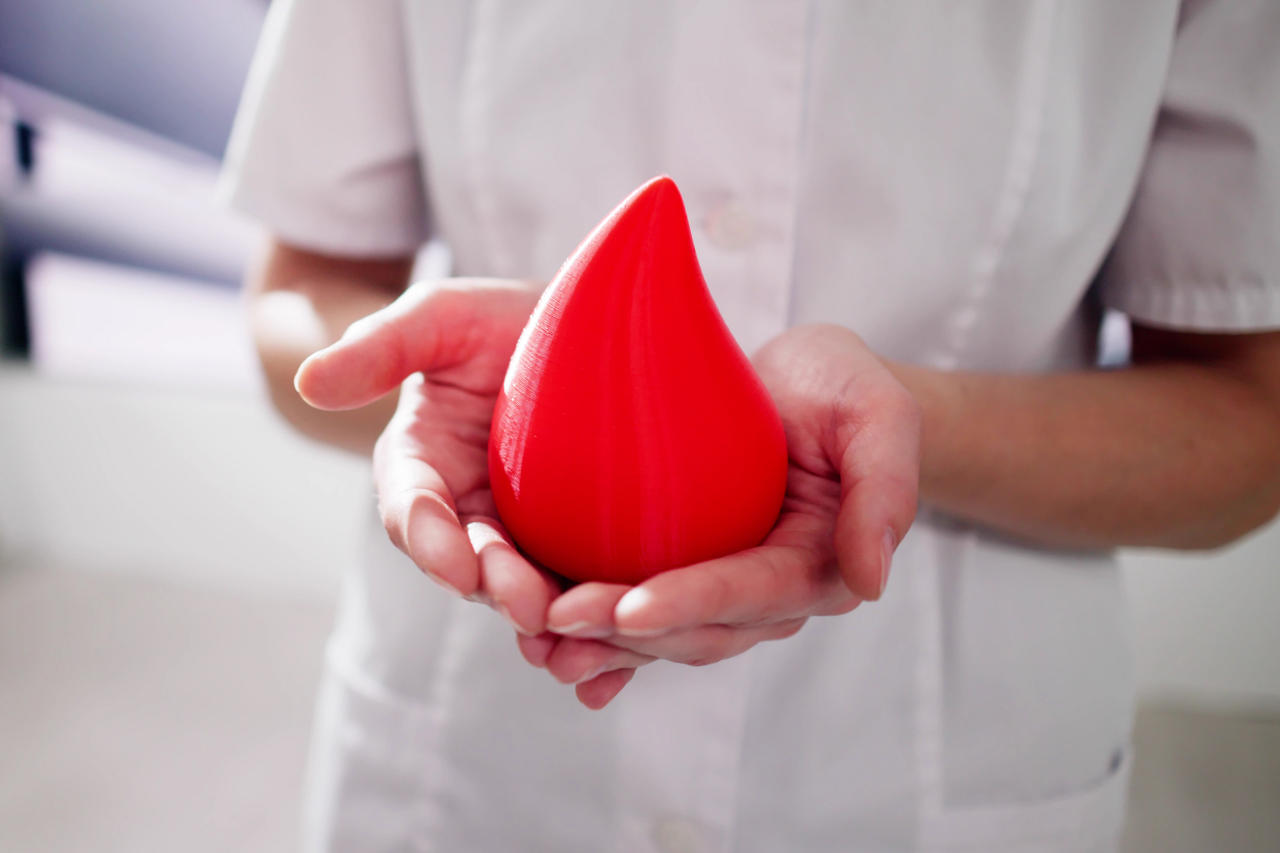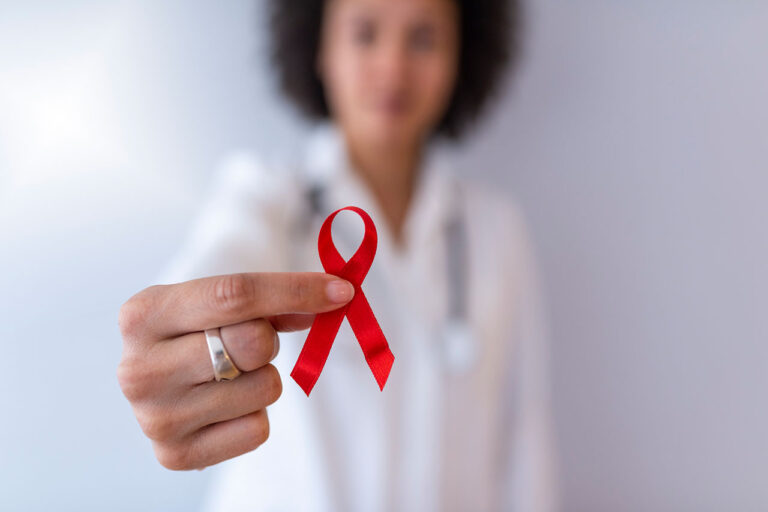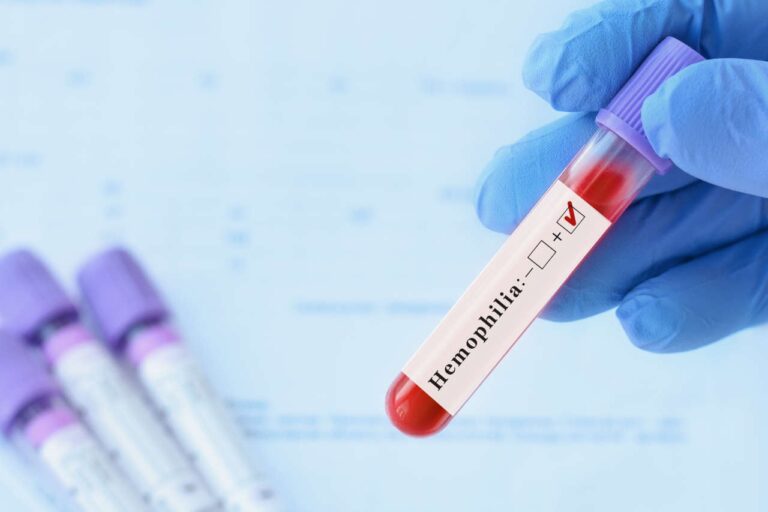
Hemophilia is a rare genetic disorder that makes it hard for blood to clot. It can lead to long bleeding episodes, even from minor cuts. While hemophilia mostly affects men, women can also be affected, especially as carriers or, in rare cases, as patients. Women who have hemophilia face special challenges during their menstruation, pregnancy, and childbirth. In order to manage these conditions properly, we need to understand hemophilia and the risks it can cause. In this article, we will talk about hemophilia and women’s health and how hemophilia affects women during menstruation, pregnancy, and childbirth.
Speak to a Specialist
About Copay AssistanceHemophilia and Women’s Health
Hemophilia is a rare genetic disease that affects the blood’s ability to form clots. The majority of hemophilia patients are men born with this disease since it is passed down from parents to children. Women can also have hemophilia, though it is much rarer. A recent study collected data on women with hemophilia in the USA [1]. It found that between 2012 and 2020, only 1,667 women received treatment for hemophilia in hemophilia treatment centers (HTC). Of them, only 51 women had severe hemophilia, and 79 of them had moderate hemophilia. Mild hemophilia was the most common in women, occurring in 1,537 women. According to available data, it is estimated that the number of women with hemophilia worldwide is about 360,000, both diagnosed and undiagnosed [3].
Hemophilia is caused by a mutation in one of the X chromosome genes, passed down from parents to children. Men have only one X chromosome, so they will have hemophilia if they inherit a mutated gene. But women have two X chromosomes. So, if they inherit one mutated gene in one X chromosome, the other normal gene in the other X chromosome will offer some protection. These women usually have no symptoms and live normal lives, and they are known as carriers. However, about 30% of female carriers experience abnormal bleeding, such as heavy and prolonged menstrual periods [4]. In rare cases, some women receive two defective genes — one from each parent — or receive one defective gene, but their other X chromosome is not working. These women experience severe bleeding symptoms just like men [2].
How Hemophilia Affects Menstruation
Hemophilia can cause great challenges for women, especially concerning menstruation. Some of the complications that hemophilia creates regarding menstruation are [5]:
Heavy Menstrual Bleeding: Women with hemophilia or carriers of the gene often experience heavy menstrual bleeding. This leads to significant blood loss, and they need to change sanitary products frequently. It also leads to complications like anemia, fatigue, weakness, etc.
Prolonged Periods: Hemophilia can increase the duration of your menstrual period. Your period can last longer than the typical duration of 3 – 7 days.
Intermenstrual Bleeding: You may experience bleeding between your regular menstrual periods. This irregular bleeding can make it hard for you to manage your menstrual health.
To manage these complications, you may consult with hemophilia treatment center (HTC) providers. They can prescribe hormonal therapies like birth control pills, which can reduce the severity of bleeding. They might also prescribe iron supplements to combat anemia caused by heavy menstrual bleeding.
How Hemophilia Affects Pregnancy

Women with hemophilia are at an increased risk of bleeding, especially during delivery and postpartum. During pregnancy, their blood clotting factors fluctuate. These clotting factors are essential for forming blood clots. So, it is important to regularly check the levels of the clotting factors and use clotting factor concentrates if necessary.
Women who have hemophilia or who are carriers have a chance of passing the mutated gene to their children. If a son inherits the mutated gene, he will have hemophilia. If a daughter inherits the mutated gene, she will be a carrier; in rare cases, she might have hemophilia. Therefore, it is important to receive genetic counseling and testing, which can determine the chances of having a child with hemophilia.
Women with hemophilia can have other complications such as miscarriage, preterm labor, etc. It is necessary to plan your pregnancy with your doctor to ensure a safe pregnancy [2][6].
Get Financial Assistance
How Hemophilia Affects Childbirth
Hemophilia can create many complications regarding childbirth. One of them is the increased risk of bleeding during childbirth. Women with hemophilia can have vaginal delivery or cesarean section, depending on their individual situation. Both of these procedures can cause significant blood loss due to the body’s impaired ability to form blood clots. To manage the bleeding risk, your doctor may administer clotting factor concentrates before, during, and after delivery.
Another major concern for women with hemophilia is postpartum hemorrhage (excessive bleeding after childbirth). It can occur within 24 hours after delivery or several days later. Close monitoring is necessary to ensure safety.
After the delivery, it is important to test the newborn for hemophilia. However, proper diagnosis is not always possible at birth. Hence, the baby is tested for hemophilia again when they are 6 months old to confirm the diagnosis [2].
Remember, managing childbirth with hemophilia requires careful planning, medical treatment, and proper support. With the right management strategies, you can have a safe delivery and ensure the best possible outcomes for you and your baby.
REFERENCES:
- CDC Archives. (n.d.). https://archive.cdc.gov/#/details?url=https://www.cdc.gov/ncbddd/hemophilia/features/hemophilia-characteristics-among-women.html
- Information on hemophilia for women. (2024, May 15). Hemophilia. https://www.cdc.gov/hemophilia/about/information-for-women.html
- Skinner, M. W. (2012). WFH: Closing the global gap – achieving optimal care. Haemophilia, 18(s4), 1–12. https://doi.org/10.1111/j.1365-2516.2012.02822.x
- Women and girls with hemophilia – WFH. (n.d.-c). https://www1.wfh.org/publications/files/pdf-2342.pdf
- Haemophilia Foundation Australia. (2024, February 8). Haemophilia symptoms in females – Haemophilia Foundation Australia. https://www.haemophilia.org.au/bleeding-disorders/women-with-bleeding-disorders/carrying-the-haemophilia-gene/haemophilia-symptoms-in-females/
- How hemophilia affects women | Lifespan. (n.d.). Lifespan. https://www.lifespan.org/lifespan-living/how-hemophilia-affects-women













